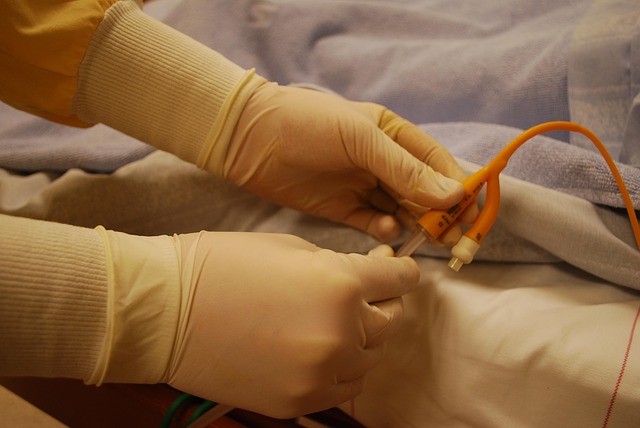Comprehensive Lung Cancer Treatment Options: Exploring Advanced Therapies and Hospitals in 2025
Lung cancer remains one of the most prevalent and challenging forms of cancer worldwide. As medical science continues to advance, treatment options have evolved significantly, offering patients improved outcomes and quality of life. In 2025, the landscape of lung cancer treatment encompasses a broad spectrum of approaches, from traditional therapies that have been refined over decades to cutting-edge innovations that are changing the paradigm of cancer care. This article examines the current state of lung cancer treatment options, advanced therapies that are showing promise, and considerations for selecting appropriate medical care.

Understanding Lung Cancer Treatment Options
Treatment for lung cancer depends on several factors including the type of lung cancer (small cell or non-small cell), the stage of the disease, and the patient’s overall health status. The primary treatment modalities include surgery, radiation therapy, chemotherapy, targeted therapy, and immunotherapy. Surgery remains the preferred option for early-stage lung cancers, with techniques ranging from minimally invasive video-assisted thoracoscopic surgery (VATS) to robotic-assisted procedures that allow for precise tumor removal with smaller incisions and faster recovery times. For patients unable to undergo surgery, stereotactic body radiation therapy (SBRT) delivers high-dose radiation with pinpoint accuracy, sparing surrounding healthy tissue while effectively treating tumors.
Systemic treatments like chemotherapy continue to play a crucial role, particularly for advanced stages of lung cancer. Modern chemotherapy regimens have been optimized to reduce side effects while maintaining efficacy. Combination approaches, where chemotherapy is used alongside other treatments, have demonstrated improved outcomes for many patients, particularly in stage III non-small cell lung cancer when combined with radiation and immunotherapy.
Advanced Therapies for Lung Cancer
The field of lung cancer treatment has been revolutionized by targeted therapies and immunotherapies. Targeted therapies address specific genetic mutations or proteins that drive cancer growth. In 2025, comprehensive genetic testing is standard practice for lung cancer patients, identifying actionable mutations like EGFR, ALK, ROS1, BRAF, NTRK, MET, RET, and KRAS G12C. Each of these mutations has corresponding FDA-approved targeted medications that can effectively control cancer growth with fewer side effects than traditional chemotherapy.
Immunotherapy has emerged as another transformative approach, harnessing the body’s immune system to recognize and attack cancer cells. Checkpoint inhibitors targeting PD-1, PD-L1, and CTLA-4 pathways have shown remarkable durability of response in certain patient populations. Combination immunotherapy approaches are increasingly common, as are maintenance strategies that continue treatment to prevent recurrence after initial disease control.
Emerging approaches include antibody-drug conjugates that deliver chemotherapy directly to cancer cells, tumor-infiltrating lymphocyte therapy, and cancer vaccines. Clinical trials in 2025 are exploring novel combinations of these approaches to overcome treatment resistance and improve outcomes for patients with advanced disease.
Choosing the Right Medical Care
Selecting appropriate medical care for lung cancer treatment requires careful consideration of several factors. Comprehensive cancer centers offer multidisciplinary teams including pulmonologists, thoracic surgeons, medical oncologists, radiation oncologists, and supportive care specialists who collaborate to develop personalized treatment plans. These centers typically provide access to the latest diagnostic technologies, including liquid biopsies that can detect circulating tumor DNA and advanced imaging techniques that precisely identify the extent of disease.
Patient-specific factors that influence treatment decisions include age, comorbidities, performance status, and personal preferences. Shared decision-making has become increasingly important, with healthcare providers discussing the benefits and risks of each treatment option and considering the patient’s goals and values. Supportive care services, including palliative care, rehabilitation, nutritional support, and psychological counseling, are integral components of comprehensive lung cancer treatment programs.
Access to clinical trials represents another important consideration. Academic medical centers and research institutions offer opportunities to participate in studies evaluating novel therapies that may provide benefits beyond standard-of-care treatments. Patient advocacy organizations can help navigate the complex healthcare system and identify appropriate clinical trials based on a patient’s specific cancer characteristics.
Leading Hospitals for Lung Cancer Treatment
Several medical institutions have established themselves as centers of excellence for lung cancer treatment, offering comprehensive programs with the latest technologies and multidisciplinary expertise. These hospitals typically feature specialized thoracic oncology departments, cutting-edge research programs, and high volumes of lung cancer cases that contribute to improved outcomes.
| Hospital/Cancer Center | Specialized Programs | Notable Features |
|---|---|---|
| Memorial Sloan Kettering Cancer Center | Thoracic Surgery, Precision Oncology | Comprehensive genetic testing, innovative clinical trials |
| MD Anderson Cancer Center | Moon Shots Program for Lung Cancer | Immunotherapy research, minimally invasive surgical techniques |
| Mayo Clinic | Comprehensive Cancer Center | Proton beam therapy, integrated care approach |
| Dana-Farber Cancer Institute | Lowe Center for Thoracic Oncology | Molecular diagnostics, targeted therapy development |
| Johns Hopkins Sidney Kimmel Cancer Center | Upper Aerodigestive Cancer Program | Robotic surgery, early detection programs |
Technological Advancements in Treatment Delivery
Technological innovations continue to enhance the delivery of lung cancer treatments. Radiation oncology has benefited from advancements like proton therapy, which delivers radiation with exceptional precision while minimizing damage to surrounding tissues—particularly valuable for tumors near critical structures like the heart or spinal cord. Adaptive radiation therapy adjusts treatment plans based on changes in tumor size or position throughout the course of therapy.
Surgical approaches have similarly evolved with robotic platforms offering enhanced visualization and dexterity for complex procedures. Artificial intelligence applications assist in treatment planning by analyzing imaging studies and predicting treatment responses. Remote monitoring technologies enable healthcare providers to track patients’ symptoms between visits, allowing for earlier intervention when complications arise.
Advances in supportive care technologies, including improved anti-nausea medications, growth factor support, and pain management techniques, have significantly improved patients’ quality of life during treatment. Rehabilitation programs specifically designed for lung cancer patients help maintain physical function and respiratory capacity throughout the treatment course.
Conclusion
Lung cancer treatment in 2025 represents a dynamic field characterized by personalized approaches, advanced therapies, and comprehensive care models. The integration of molecular diagnostics, targeted treatments, immunotherapies, and refined traditional modalities offers patients more effective and tolerable options than ever before. As research continues to uncover new therapeutic targets and innovative combination strategies, the outlook for lung cancer patients continues to improve. Selecting the right medical care involves consideration of institutional expertise, available technologies, and alignment with individual patient needs and preferences.
This article is for informational purposes only and should not be considered medical advice. Please consult a qualified healthcare professional for personalized guidance and treatment.




